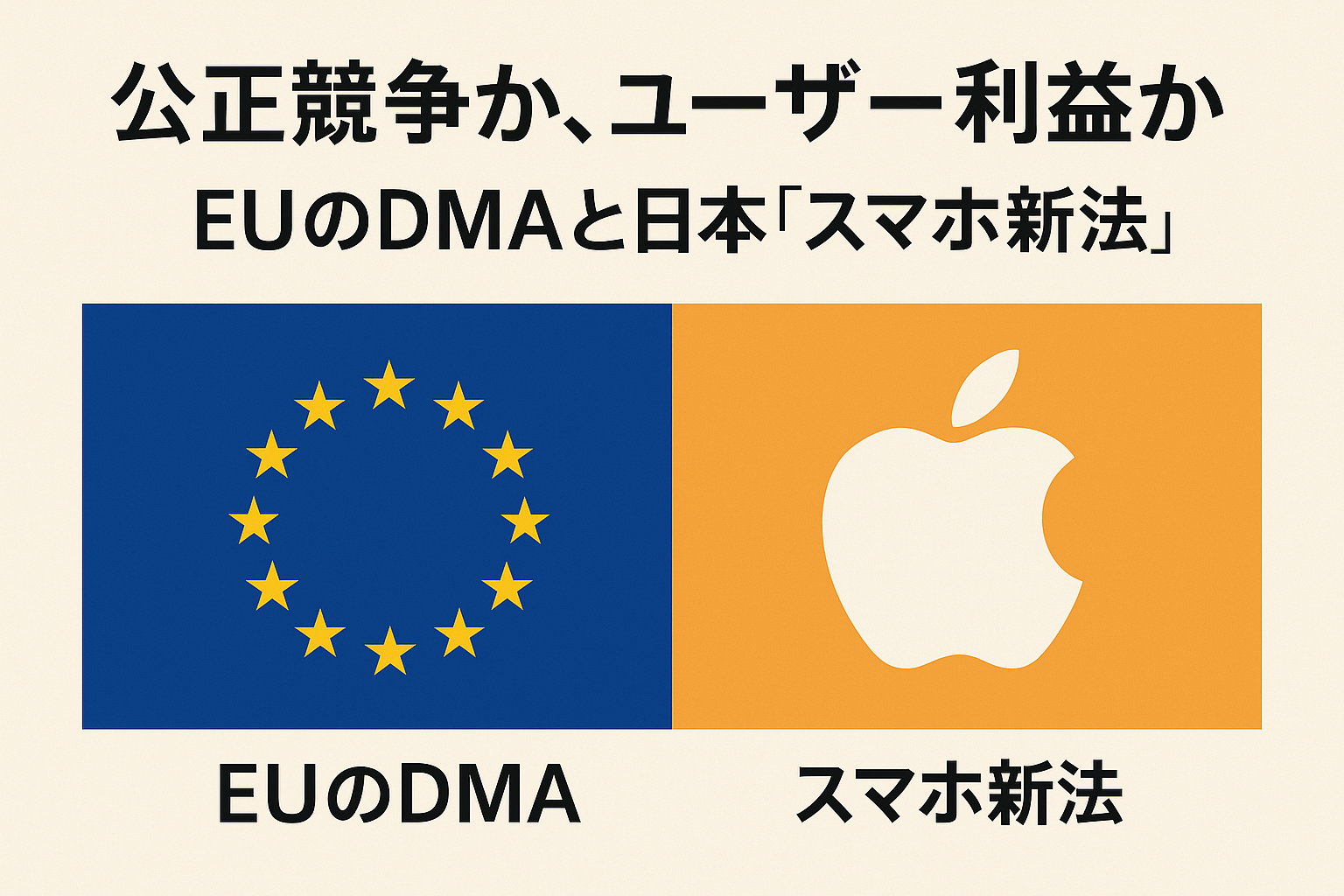Introduction
Around the world, there is growing momentum to demand “fair competition from major platformers.” At the forefront is the EU’s Digital Markets Act (DMA), and in Japan, the “Smartphone Software Competition Promotion Act” (hereinafter the “Smartphone New Act”) will come into effect this December.
This article reviews the regulations the DMA imposes on Apple, the background behind certain functions like “Live Translation” not being available, and considers how the debate may unfold in Japan.
The DMA in the EU — In the Name of “Interoperability”
The purpose of the DMA is to “ensure interoperability” and “correct monopolistic practices of dominant platformers.”
Against Apple, the following requirements have been imposed:
- External provision of iOS notification content
- Sharing of Wi-Fi connection history
- Disclosure of technologies such as proximity pairing and automatic audio switching
At first glance, these may appear necessary for “fair competition,” but they directly involve user privacy and security. Apple has strongly opposed them as “demands that disregard privacy,” resulting in a situation where only EU users are unable to access certain functions.
Apple’s Argument — The Risk of “Delaying and Diluting”
Apple executive Greg Joswiak commented:
- Interoperability through standards bodies is welcome, but immediate provision of technology to competitors is unrealistic.
- Forcing the disclosure of proprietary, differentiated technology “free of charge” is unfair.
- Mandatory opening could ultimately carry the risk of “delaying technological progress and diluting functionality.”
In other words, what the DMA frames as “fairness” appears to Apple as “an impediment to innovation.”
Japan’s Smartphone New Act — Will It Repeat the Same Mistake?
Attention now turns to Japan’s “Smartphone Software Competition Promotion Act.”
Apple has warned, “Other governments may make the same mistake.” This can also be interpreted as pressure directed at Japanese regulators.
However, Japan’s current rules are seen as less heavy-handed than the DMA and more focused on “reasonableness.” Therefore, the risk of new features disappearing wholesale, as in the EU, may be lower. Still, Apple is clearly not optimistic.
Points to Consider
This case highlights how difficult it is to reconcile “fair competition” with “user benefits”:
- Opening technology is necessary for ensuring competition, but mandatory sharing of private information is counterproductive.
- Promoting standardization is important, but it requires measures to avoid undermining incentives for proprietary innovation.
For Japan, the question is whether it can design a balanced implementation that serves as a “global model.”
Conclusion — Japan’s Choice: Becoming a “Global Model” or Not
The EU’s DMA is indeed bold, but as a side effect, it deprives users of functions they should have been able to enjoy.
Will Japan’s Smartphone New Act follow in those footsteps, or will it achieve the coexistence of “fairness and user benefits”? That is the real watershed.
What we should hope for is not “regulation for the sake of regulation,” but a framework that balances user experience with a competitive environment. The key question is whether Japan can present such a model case to the world.

